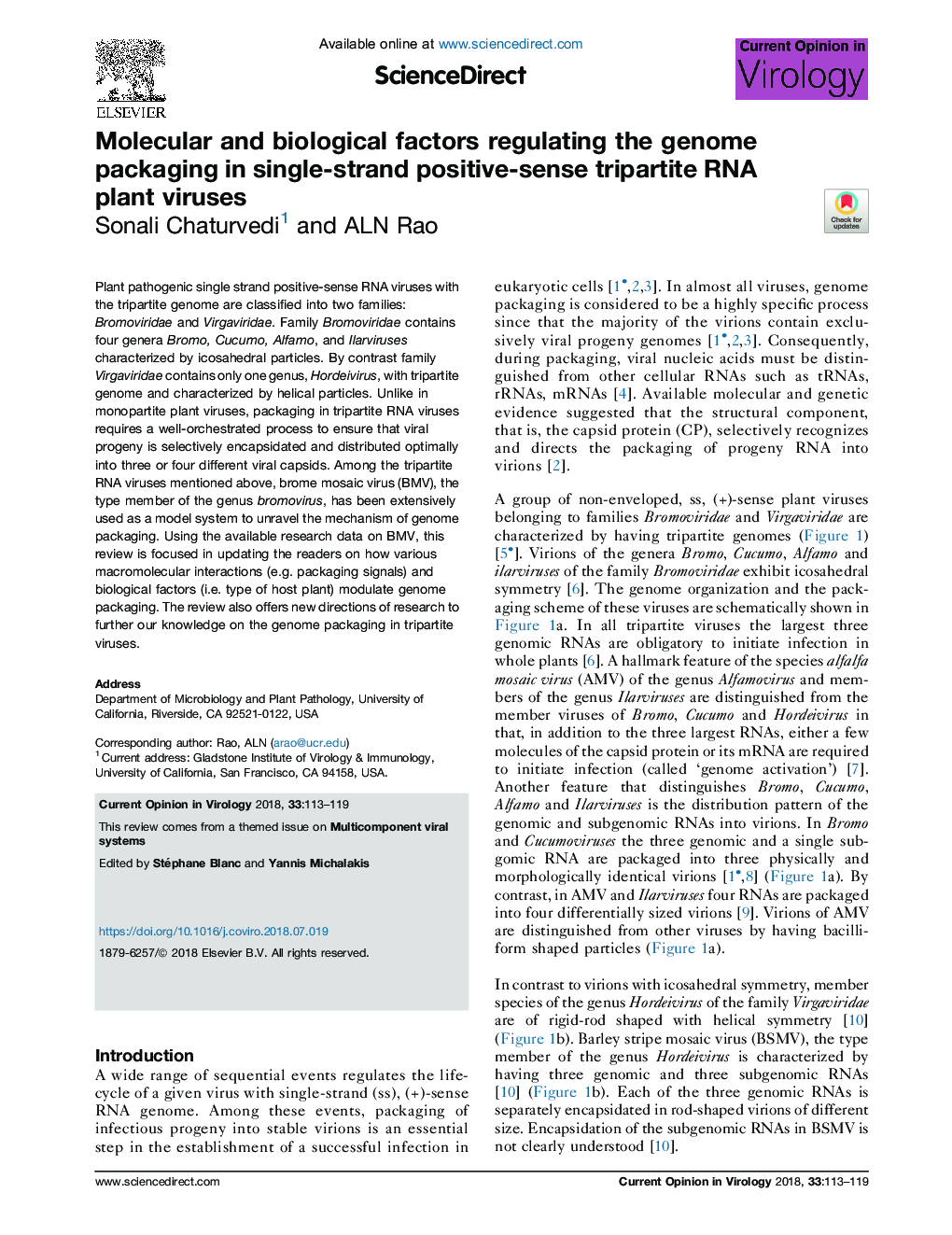| Article ID | Journal | Published Year | Pages | File Type |
|---|---|---|---|---|
| 9954709 | Current Opinion in Virology | 2018 | 7 Pages |
Abstract
Plant pathogenic single strand positive-sense RNA viruses with the tripartite genome are classified into two families: Bromoviridae and Virgaviridae. Family Bromoviridae contains four genera Bromo, Cucumo, Alfamo, and Ilarviruses characterized by icosahedral particles. By contrast family Virgaviridae contains only one genus, Hordeivirus, with tripartite genome and characterized by helical particles. Unlike in monopartite plant viruses, packaging in tripartite RNA viruses requires a well-orchestrated process to ensure that viral progeny is selectively encapsidated and distributed optimally into three or four different viral capsids. Among the tripartite RNA viruses mentioned above, brome mosaic virus (BMV), the type member of the genus bromovirus, has been extensively used as a model system to unravel the mechanism of genome packaging. Using the available research data on BMV, this review is focused in updating the readers on how various macromolecular interactions (e.g. packaging signals) and biological factors (i.e. type of host plant) modulate genome packaging. The review also offers new directions of research to further our knowledge on the genome packaging in tripartite viruses.
Related Topics
Life Sciences
Immunology and Microbiology
Virology
Authors
Sonali Chaturvedi, ALN Rao,
